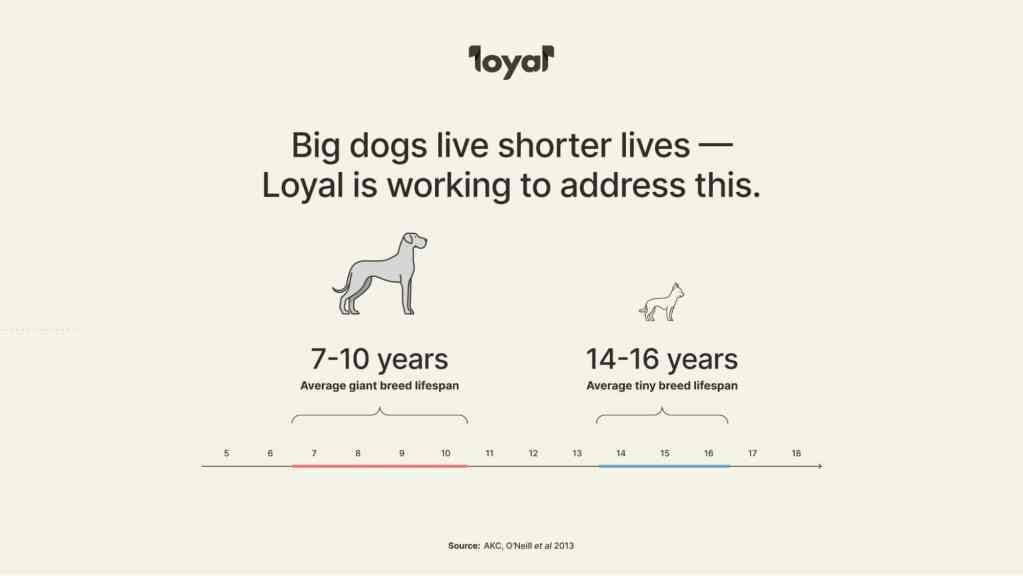Dear Readers,
We are all going to die.
Sorry to be so blunt in the opening line, but it’s true!
Obviously, most people are interested in living longer, healthier lives. We all know the conventional wisdom—eat healthy, exercise, get enough sleep, minimize vices like alcohol and smoking, yada yada yada.
For some people, that’s not enough, and they desperately seek any possible means to fight—or even reverse—aging. This desire is an ancient one, going back to Ponce de Leon’s search for the Fountain of Youth and even the medieval legend of the Holy Grail that grants eternal life, infamously depicted in Indiana Jones and the Last Crusade: “He chose…poorly” 💀
In this post, we’re going to discuss some recent examples of people attempting to turn back the clock on aging in both humans and animals.
Tech Bros and “Biohacking”

One of the most sensational—in the tabloid sense of the word—examples of the quest to reverse aging is Bryan Johnson, a 46-year-old tech entrepreneur based in Venice, California, who has invested over $4 million in developing a controversial life-extension system called Blueprint, which aims to combat aging and extend human life indefinitely. He entrusts every decision about his body to a team of doctors who design a rigorous health regimen based on data to attempt to reduce his "biological age." Johnson's routine is truly hardcore (and a bit bizarre): in addition to a strict diet and intensive workout regimen, it includes taking over a hundred pills daily, wearing a cap emitting red light onto his scalp, collecting stool samples, and even using a device to monitor nighttime erections.
While Johnson is not alone in his pursuit of longevity, his approach stands out for its reliance on a questionable anti-aging “algorithm” to manage his entire body. He rejects the inevitability of death, planning to never experience it. By adhering to his regimen, Johnson aims to have his organs function as those of an 18-year-old. He claims that Blueprint has already yielded promising results, with his doctors reporting his bones resembling those of a 30-year-old and his heart behaving like that of a 37-year-old.

However, experts in the field of aging research express skepticism about Johnson's claims and his approach to achieving immortality. Some question the safety and efficacy of his extensive supplement regimen and treatments, warning of potential adverse interactions between the multitude of pills he consumes. Critics also caution against the lack of transparency in Johnson's methods and the absence of collaboration with independent scientists:
“It’s not just that medical professionals are skeptical of Blueprint’s ability to achieve immortality. They’re not even convinced Johnson’s routine is particularly healthy. Dr. Nir Barzilai, the director of the Institute for Aging Research at the Albert Einstein College of Medicine in New York City, met Johnson in May, at the annual retreat for the Academy for Health & Lifespan Research. Barzilai recalls that when Johnson showed up, the doctors present were concerned. “He looked sick. He was pale. I don’t know what he did with his face,” Dr. Barzilai says, adding that he was alarmed by Johnson’s lack of fat, which plays an important role in the body. “All these MDs, we all kind of agreed that he didn’t look so great.”
Barzilai also has serious reservations about Johnson taking so many supplements and treatments at once, warning that all the different pills could interact with one another in dangerous ways. “What he’s doing hasn’t proven to be safe, because some of the treatments he’s taking are actually antagonizing to each other,” he says, adding that doctors normally research the effects of one drug at a time, rather than the cumulative effects of more than 100 pills at once. “Even if it works for him, how do you know it works for you?” Barzilai says. Blueprint, he adds, is “not an experiment that we accept as scientists or doctors.”
Despite the controversy, Johnson plans to make Blueprint available to the public (at the “bargain” price of ~$4,000 a year, of course 🙄), leveraging his online platform and commercial products to bring his vision of life extension to a broader audience. It seems all roads for tech bros, celebrities, and influencers eventually lead to hawking supplements:

Here at All Science, we are on the PBS/NPR model: the vast majority of content is FREE, and paid subscriptions allow me to do the research and writing that goes into producing the site, as well as to give back to the community (donations to the Humane Society of Tampa Bay). If you find yourself enjoying these articles, consider becoming a free or paid subscriber 👇
The Dog Aging Project
A more legitimate and science-based effort to study what happens when mammals get older is The Dog Aging Project, an ambitious endeavor aimed at studying the health and longevity of nearly 50,000 pet dogs. Initiated in late 2019, the project has since enrolled tens of thousands of canines, with researchers collecting comprehensive data on their lives, health, and environments. The project holds promise not only for understanding canine aging but also for providing insights into human health. However, with the majority of its funding from the National Institute on Aging set to expire soon, the project's future hangs in the balance.

Despite the significant progress made by the Dog Aging Project (they have already published dozens of studies), securing ongoing funding has proven challenging. An application for a five-year grant renewal was not favorably received, leaving researchers uncertain about the project's continuation. Facing the possibility of pausing or scaling back the study, the team has mobilized efforts to raise funds independently, forming the Dog Aging Institute. This nonprofit aims to sustain the project and support related research endeavors. While there's hope for continued support from the National Institutes of Health, the researchers recognize the need to diversify funding sources to ensure the project's longevity.
The Dog Aging Project's significance lies not only in its potential scientific discoveries but also in its engagement of thousands of Americans in biomedical research. Like the Morris Animal Foundation Golden Retriever Lifetime study, numerous pet owners have eagerly participated, hopeful that the project's findings could benefit both their canine companions and humans. As the researchers navigate the uncertainties of funding, they remain committed to their mission, determined to secure the resources needed to advance understanding of aging and improve the health and well-being of both dogs and people.
I, for one, hope they are able to secure funding and continue their groundbreaking work without interruption 🤞
An Anti-Aging Drug for Big Dogs?
Finally, I have had several readers ask me about the buzz surrounding a new anti-aging medication in development for large breed dogs: The San Francisco-based biotech company Loyal is preparing clinical trials to test an anti-aging drug, initially named LOY-001, targeting a growth and metabolism hormone called Insulin-like Growth Factor 1, or IGF-1. LOY-001, administered via injection every three to six months, aims to slow the rate of aging in healthy dogs over seven years old and above 40 pounds. Simultaneously, Loyal is also developing a separate anti-drug with a different mechanism called LOY-002, and a daily pill version of their pilot drug called LOY-003.
The basic thought process behind their drug goes like this: Large and giant breed dogs have a much shorter average lifespan than small and medium-sized dogs. IGF-1 promotes the growth of children and young animals and is found in much higher levels in large breed dogs (almost THIRTY times the level in dogs <40 lbs). Indeed, variations in this gene are the primary determinant of body size in dogs. Low levels of IGF-1 have been linked to longer lifespans in rodents and moderate levels of IGF-1 seem to reduce mortality in people compared to very high or very low levels. The hope is that reducing the excess IGF-1 in gentle giants like Great Danes can give them more time with their families.

The early data seems promising enough that it cleared a first hurdle on the way to FDA approval, granting “Reasonable Expectation of Effectiveness” status to their initial application for LOY-001:
“The drug itself has not been approved by the FDA nor has it received conditional approval, but the support demonstrated by the agency is a milestone in the development process. The Center for Veterinary Medicine (CVM) at the FDA has reviewed Loyal’s data, results, and scientific arguments and determined they provide reasonable expectation of the drug’s effectiveness to extend canine lifespan and health span, ahead of today’s announcement.
The Reasonable Expectation of Effectiveness approval is an important part of Loyal’s application for the drug’s conditional approval, an accelerated pathway for increasing the availability of novel animal drugs. If the FDA also approves Loyal’s manufacturing and safety data packages, the company can then market the drug for lifespan extension in the target canine population. Conditional approval lasts for up to 5 years, during which time Loyal will collect the remaining effectiveness data and apply for the drug’s full FDA approval.”
Loyal plans to conduct large-scale clinical trials of LOY-001 in the next two years, with the goal of bringing the drug to market by 2026. If studies truly demonstrate a significant increase in lifespan for our large canine friends it could be a game changer for veterinary medicine. Only time and data will tell…
In closing, we’ve explored a few recent stories about people trying to fight back against aging for themselves and their pets. From the controversial methods of tech entrepreneurs like Bryan Johnson to the promising research by the Dog Aging Project and Loyal, it's clear that our fascination with beating the clock isn't just alive and kicking; it's in overdrive. While skepticism and caution are warranted, especially in light of unproven and potentially risky interventions, I’m hopeful that someday these efforts will not only promise more wagging tails but also offer a glimpse into what might be on the horizon for us humans. Whatever happens, I will keep you posted on the latest developments!
—Eric








Fascinating article thank you, and I look upon the tech bro with a mix of pity and recoil. I think billionaires start realizing how many lifetimes they will need to spend all their money instead of giving it away, and feel compelled to live forever.
Sleep, clean foods, exercise, and fun. Priceless. Wish I could afford more of these, but the limiting resource is time.
That being said, I wouldn't mind living to 100 if I could still do stuff and have a sharp mind. Thanks for keeping us posted, and someone give that tech bro some Doritos already. MSG and cheese powder are too good to never eat again.
It is one of the great injustices of life that big dogs live for less time. I'm interested in whether this drug will maintain their quality of life, though, or just extend thei senior years with all the health issues that can entail.
Incidentally, I had an English Mastiff who lived to about 16 (she was a rescue, so never knew her exact age). Happy and healthy, until she wasn't and it was time to let her go.